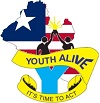 Learning that you are HIV positive can be one of the most difficult experiences that you go through in life. You may feel scared, angry and sometimes very discouraged, but this should not be the end of you enjoying your normal life. Most people live in denial and this affects their normal lives and while others tend to incline to the myths and misconceptions.
Learning that you are HIV positive can be one of the most difficult experiences that you go through in life. You may feel scared, angry and sometimes very discouraged, but this should not be the end of you enjoying your normal life. Most people live in denial and this affects their normal lives and while others tend to incline to the myths and misconceptions.
Konnie (not her real name), one of our beneficiaries says, “ I was very scared to go for HIV test, but one of the program staff talked to me and explained to me how I can take care of myself even if I test positive. I was convinced and went for the test. Unfortunately, I turned positive, but that was a u-turn for me.” Konne testifies that it is good she did the test because now she is able to organize her life, live positive by adhering to treatment. “People could not tell that I am HIV positive.” In most cases, people still believe that you can tell if someone is infected just by looking at them. A person with an HIV infection might display symptoms that are similar to any other type of infection, such as a fever or fatigue.
Our programs have continued to advocate for HIV testing as one of the preventive measure to address HIV/AIDS. Over the years, many indigenous or traditional healers have claimed to be able to cure AIDS. To this day, no treatments done by traditional healers have proven to cure HIV infection. We often hear of other people who say they have developed a cure for AIDS. People with HIV are a very vulnerable group because they desperately want to get rid of their life-threatening illness and often will pay large amounts for even a small chance of a cure. Many people see them as a source of easy money and try to exploit them.
Konneh says she knows of people who believe that traditional medicine can cure and now that she knows the facts, she can never try it. She says,
“I know people, especially in the village who believe that traditional medicine men can provide cure for HIV. They lack information, so they are easily manipulated because they are desperate. Now that I have the facts right, I have the confidence to reach out.”
Over the time, Youth Alive Liberia has implement HIV/AIDS project in different counties in Liberia. For the USAID funded EpiC project which is implemented in Montserrado, we have managed to carry out testing services, outreaches and referred our clients, who are female sex workers, to health facilities for treatment. In the other project counties of Margibi, Bong, Nimba and Grand Bassa, the Global Fund project is also on course, ensuring that the Key Population and other marginalized communities access HIV/AIDS health services. Establishment of Drop in Centers in Grand Bassa and Nimba and other field offices in the four project counties are expected to improve the services we offer.
Youth Alive Liberia continues to extend gratitude to the entire staff for their tireless efforts and the donors for the continued support to ensure that people like Konneh can access health services, regardless of their age, race, sexual identity and sexual orientation. Partners have also played a key role in ensuring that our projects attain its deliverables as per the donor requirement and the organization’s goal and objectives.
“If it were not for you guys, maybe by now my health would have deteriorated, or I could even be dead. You opened my eyes.” Konne concludes.
